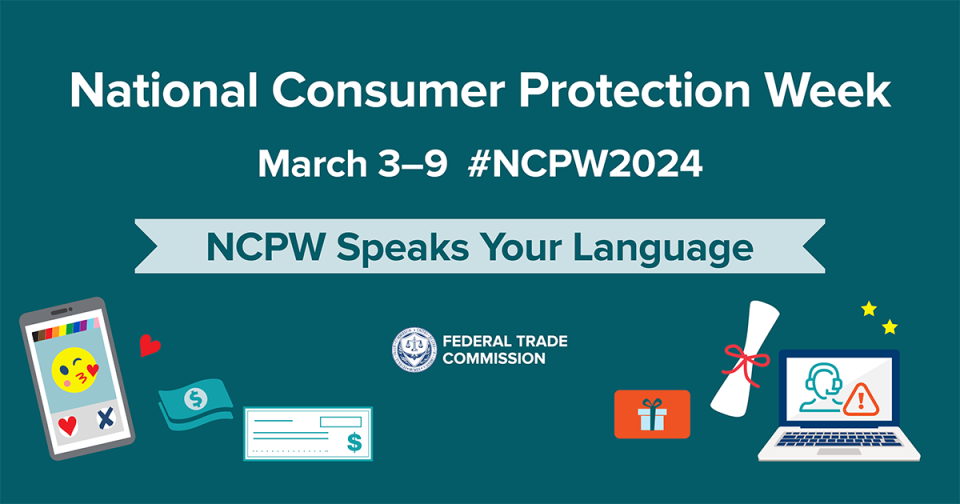That call or text might not seem like a scam. It might look like it’s Apple or Microsoft, saying there’s a problem with your computer. (It’s not.) It might seem like it’s Amazon, saying there’s a problem with an order. (Also no.) It might even sound like your grandchild, calling with (supposedly) an emergency. (Still no.) All of these are scammers. This is National Consumer Protection Week (NCPW) and we’re inviting you to join us in talking about scams just like these.
Scammers target everyone, in any language. But research and experience show that talking about scams helps us avoid them. So, this NCPW, let’s talk about scams. Start a conversation to share what you learned about how to spot, avoid, and report scams. Maybe even reach out to someone who might need a little extra help or information.
To join the conversation this NCPW:
- Attend a free FTC event. Talk about scammers’ tactics. Choose from dozens of virtual and in-person events at ftc.gov/ncpw. (Invite a friend, too.)
- Spread the word. Get free printed materials sent to you at ftc.gov/bulkorder. Find free online and print materials in a dozen languages at ftc.gov/languages. Order, download, and share them in your community.
- Tell the FTC. Because scammers don’t let language stop them, the FTC now takes scam and identity theft reports in all languages by phone, as well as online in English and Spanish.
- Report in English: ReportFraud.ftc.gov or IdentityTheft.gov
- Report in Spanish: ReporteFraude.ftc.gov or RobodeIdentidad.gov
- Report scams in your language: Call (877) 382-4357 and press 3 to speak to an interpreter in your language (from 9-5 ET)
- Report identity theft in your language: Call (877) 438-4338 and press 3 to speak to an interpreter in your language (from 9-5 ET)





